class: center, middle, inverse, title-slide # Lecture 2: Human Dignity and Political Community in War and National Security ## or, Who gets to Say That The Rules Don’t Apply? ### Jack McDonald ### 2019-10-04 --- # Outline .pull-left[ War is fundamentally the organised violent interaction of "imagined communities" that occurs in the context of nested overlapping and evolving political systems. War is still a communal endeavour, but now takes place in the context of expectations of universal individual human worth. ] .pull-right[ - Who Matters in War & National Security? - Human Dignity - Violations & Exceptions - Human Dignity in Context (Cases) ] ??? --- # Dirty War: My Description .pull-left[ .medium[ > Dirty wars are conflicts where one or more parties to the conflict denies the political, legal, and/or moral status of their opponents. Key elements of the contemporary - Existence of universal standards (1940s – 1960s) - Monoculture of international recognition - nation states (1940s – 1960s) - Existence of UNSC, and UN (1945) - Bureaucratic states (19th Century) - Information societies and mass media (19th Century) - Human Rights (1948 – 1970s) ] ] -- .pull-right[ .medium[ - As a prior to conflict - Political beliefs (enmity, goals) - Political relationships (Empire, national security) - As integral to a conflict - Strategic dilemmas & tactical problems - Necessity - Intelligence operations - As related to historical expectations of standing - International relations/imperialism - International law (LOAC/IHRL) - Norms of war/peace (Humanity, human rights) ] ] --- > In the face of such evil some people believe that they must assert, and others that they must deny, that even people who have done such deeds are sacred... They may say that even such people are infinitely precious, or that they are ends in themselves, or they may say, more simply, that even such people are owed unconditional respect, meaning, not that they are deserving of esteem, but that they are owed a kind of respect that is not conditional upon what they have done and that cannot be forfeited. Some will say that even the most terrible evildoers are owed this respect as human beings and that we owe it to them because we are human beings. That amounts to saying they remain our fellow human beings whatever they do. Many find that incomprehensible. They are likely to retort that if someone is to be treated or respected as a human being then they must behave like a human being. That seems to be sober common sense. Raimond Gaita, _Good and Evil_ ??? Quote from p.1 - referring to a rabbi forced to spit on the Torah in occupied Warsaw, and a Nazi spitting into his mouth when he was no longer able to spit. --- class: inverse # Theory Discussion Question .question[ Are members of ISIS who have committed genocide, slavery, rape, and/or war crimes still "owed unconditional respect"? What would you say to someone who would deny them such respect? ] ??? --- class: inverse # Part 1: Who Matters in War and National Security? ??? --- # Coordinating Legitimate Violence .pull-left[ > A public ritual is not just about the transmission of meaning from a central source to each member of an audience; it is also about letting audience members know what other audience members know. Michael Suk-Young Chwe, _Rational Ritual_ ] .pull-right[  ] War, national security, and rebellion involve (competitive) social coordination problems ??? --- # Frames of War > We might think of war as dividing populations into those who are grievable and those who are not. Judith Butler, _Frames of War_ ??? Butler quote, p.38 --- # Frames of National Security .left-column[   ] .right-column[ > If you are a British national in Iraq or Syria and if you have chosen to fight for [ISIS] – an illegal organisation that is preparing and inspiring terror attacks on our streets – then you have made yourself a legitimate target Michael Fallon > Quite simply, my view is a dead terrorist can't cause any harm to Britain... I do not believe that any terrorist, whether they come from this country or any other, should ever be allowed back into this country... Gavin Williamson ] ??? Terrorism, subversion, insurgency ...and social movements Securing the state, or the status quo? --- # The Practicalities of Securing the State .pull-left[ .medium[ > In modern societies, bureaucracy – whether private or public – is ubiquitous, and it seems to many an unloved necessity. Without it, few of the routine features of contemporary life in modern society would be possible... The age of bureaucracy is also the era of the information society. Christopher Dandeker, _Surveillance, Power and Modernity_ ] ] .pull-right[ 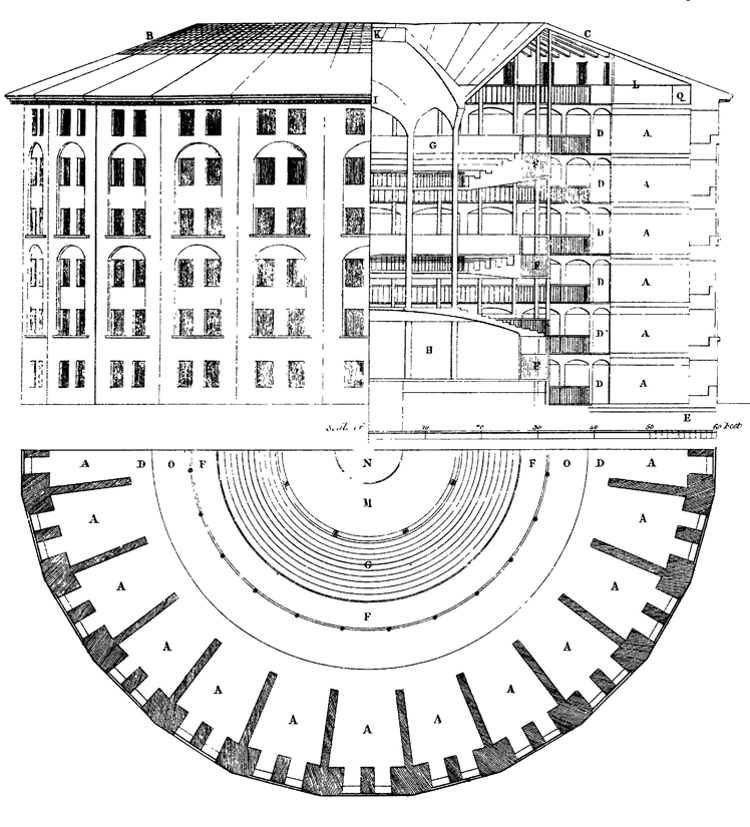 ] ??? Force beyond violence Who can be surveilled? Why/Why not? Internal/external threats Citizens --- # Cosmopolitan and Communitarian Obligations .left-column[  ] .right-column[ .medium[ > Machiavelli’s values, I should like to repeat, are not instrumental but moral and ultimate, and he calls for great sacrifices in their name... > The moral ideal for which he thinks no sacrifice too great — the welfare of the _patria_ — is for him the highest form of social existence attainable by man; but attainable, not unattainable; not a world outside the limits of human capacity, given human beings as we know them... > If you object to the political methods recommended because they seem to you morally detestable... Machiavelli has no answer, no argument. Isaiah Berlin ] ] ??? --- class: inverse # Part 2: Human Dignity ??? --- # Dignity and Social Standing/Status > Until about 1830-1850, neither the English term "dignity," nor its Latin root _dignitas_, nor the French counterpart _dignité_, had any currency as meaning "the inherent or unearned worth of all persons." ...until little over a century ago, dingity connoted _social_ status of the kind associated with nobility, power, gentlemanly comportment, or preferment within the church - not some fundamental, unearned, equally shared _moral_ status among humans. Remy Debes, _Dignity: A History_ ??? Quote from page 1-2 --- # Social Status and Political Standing .medium[ > Institutionalized dependency and servitude had been accepted without question in Western and non-Western cultures alike, from the dawn of recorded history until the modern historical era, and they have formed one of the basic institutions that have appeared in almost every culture. Earlier discussions of dependency, and more specifically slavery, where they occurred, were couched in terms of how individual slaves should be treated, who should be a slave, and how one could fall into or lose slave status, but not whether the institution itself should exist. > ...institutionalized coercive relationships, whether for profit or for some more overtly social purpose, were normal before the nineteenth century and have diminished rather dramatically since. David Eltis and Stanley L. Engerman, _Dependence, Servility, and Coerced Labor in Time and Space_ ] ??? Eltis/Engerman quote from page 3, Cambridge World History of Slavery, Vol.3 --- # Citizenship and Legal Rights .medium[ Dimensions of citizenship - Legal status, with civil, political, and social rights - Political agency, including participation in a society’s political institutions - Membership in a political community that results in a distinct source of identity (also psychological) Republican model of citizenship - Civic self-rule, and rotation of offices - Active participation in politics/society (indivisible) - Emphasises second dimension Liberal model of citizenship - A legal status to protect individuals and private associations from interference by the state, or other individuals - Private citizenship, and largely passive ] ??? --- # Human Dignity .left-column[ ![SS [Schutzstaffel(protection echelon)] Sturmbannfuehrer Dr. Sigmund Rascher (right) and Dr. Ernst Holzloehner(left) observe the reactions of a Dachau prisoner who has been immersed in a tank of ice water in an attempt to simulate the extreme hypothermia suffered by pilots downed over frigid seas.](img/2/dachau.jpg) ] .right-column[ > The professional and scientific context of the day promoted eugenic and racist ideas within the framework of the academic milieu and curriculum of the medical and scientific community... Having defined the victims, science had created its own research subjects. The helpless human quarry incarcerated by the state was viewed by medical science as a unique opportunity for the kinds of research which under German law were not permitted even on animals. William E Seidelman, _Nuremberg lamentation_ ] ??? Article https://doi.org/10.1136/bmj.313.7070.1463 --- # Human Rights .pull-left[ 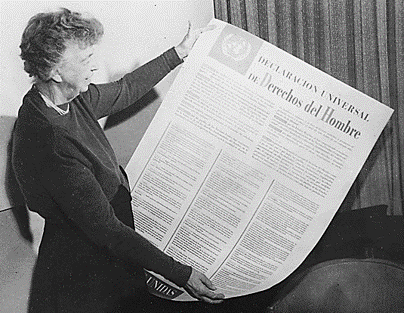 ] .pull-right[ Absent in antiquity Natural law -> Natural Rights Human dignity -> Human Rights Human rights as a universal _thing_ Communal and individual human rights ] ??? --- class: inverse # Part 3: Violations & Exceptions ??? --- # Contours of Genocide .medium[ > Many aborigines say that they were treated as 'sub-human'. To see why that is often not even slightly an exaggeration, one need only remember that sub-human treatment need not be cruel. It can vary from the unrelievedly brutal to the treatment some 'benevolent' slave owners gave to their slaves. It is consistent with sincere, romantic admiration for the 'nobility' of the people who are treated as sub-human. Raimond Gaita, _A Common Humanity_ > For some time, certainly in the thirties, and in some places, certainly in Western Australia and the Northern Territory, the absorption program expressed the horrifyingly arrogant belief that some peoples may eliminate from the earth peoples they believe to be less than fully human. Australian Human Rights Commission, _Bringing Them Home_ ] ??? Gaita quote from p.121 --- # States of Exception .pull-left[ 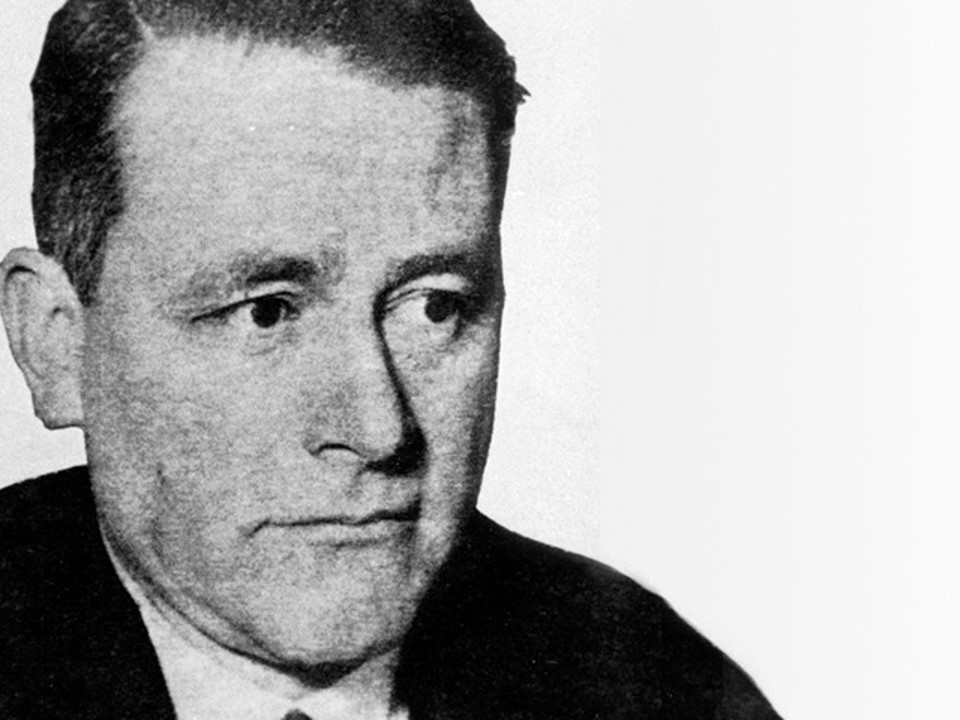 ] .pull-right[ > Sovereign is he who decides on the exception. Carl Schmitt, _Political Theology_ ] ??? --- # Administrative Exceptions .pull-left[  .small[ > Designed or planned social order is necessarily schematic; it always ignores essential features of any real, functioning social order. James C. Scott, _Seeing Like a State_ ] ] -- .pull-right[ .medium[ > The question was always: Who shall make law, and what shall that law be? The other question, how law should be administered with enlightenment, with equity, with speed, and without friction, was put aside as "practical detail" which clerks could arrange after doctors had agreed upon principles. Woodrow Wilson, _The Study of Administration_ ] ] ??? Wilson quote is from 1887 https://www.jstor.org/stable/2139277?seq=1#metadata_info_tab_contents Max Weber - Offered an idealised model of rational, hierarchical bureaucracy Herbert Simon - Identifies the decision-making process as the central feature of bureaucracy - Organisations make value judgements (selecting goals) and factual judgements (paths to pursuing goals) - Bounded-rationality and satisficing as forms of decision-making, efficiency is a key element of organisations James Q. Wilson - Explains organisational behaviour as interaction between rank-and-file, managers, and leaders - The observability of outputs and outcomes produces different types of organisation Other theories --- class: inverse # Discussion Question .question[ Is it right or wrong for political leaders to value the lives of their own citizens above the lives of non-citizens? ] ??? --- class: inverse # Part 4: Human Dignity in Context ??? --- # Democratic Republic of Congo .pull-left[  ] -- .pull-right[ .small[ > Against the deceit, fraud, robberies, arson, murder, slave-raiding, and general policy of cruelty of your Majesty’s Government to the natives, stands their record of unexampled patience, long-suffering and forgiving spirit, which put the boasted civilisation and professed religion of your Majesty’s Government to the blush… All the crimes perpetrated in the Congo have been done in your name, and you must answer at the bar of Public Sentiment for the misgovernment of a people, whose lives and fortunes were entrusted to you. George Washington Williams, _An Open Letter to His Serene Majesty Leopold II_ ] ] ??? Full text of letter here --- # Vietnam .pull-left[ .picblock[ 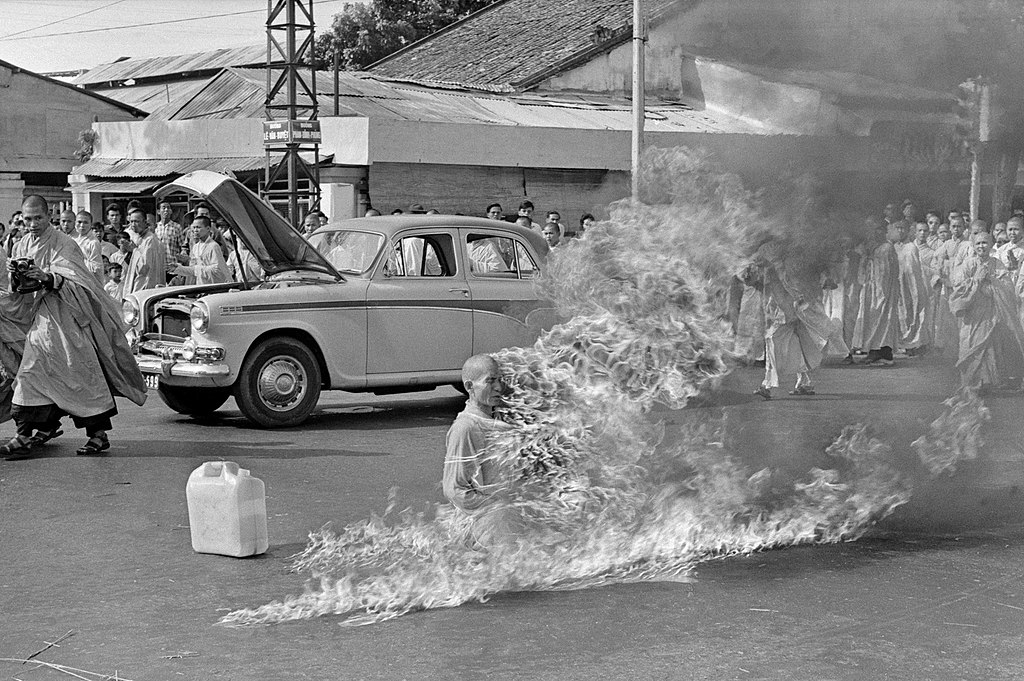 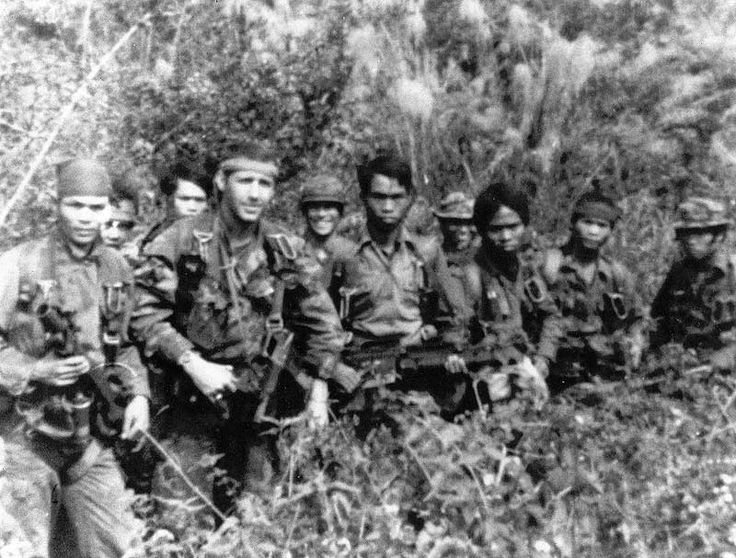 ] ] -- .pull-right[ Social movements and political repression in both North and South Vietnam Ethnic minorities defending independence from the state ] ??? --- # Argentina .pull-left[ 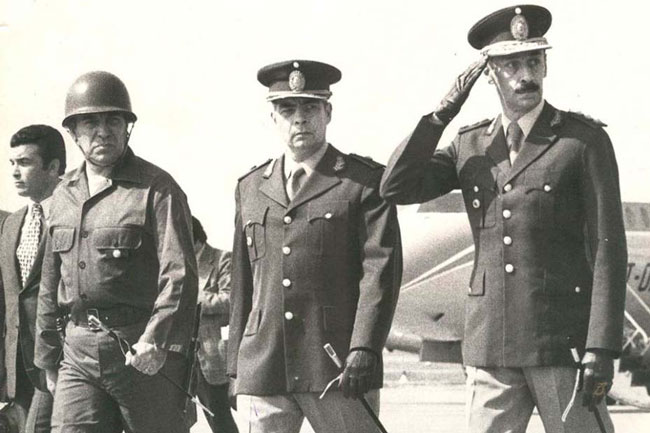 ] -- .pull-right[ > We are going to have to kill 50,000 people: 25,000 subversives, 20,000 sympathizers, and we will make 5,000 mistakes. General Luciano Menéndez ] ??? --- # The Troubles .pull-left[  ] -- .pull-right[ Good to look at long history of Britain and Ireland - 1798 rebellion, Fenian dynamite campaigns, Easter Rising 1916, War of Independence 1919-21 - Mid 1960s civil rights campaigns, and inter-communal violence - The Troubles (and all that followed) ] ??? --- # Global War on Terror .pull-left[ 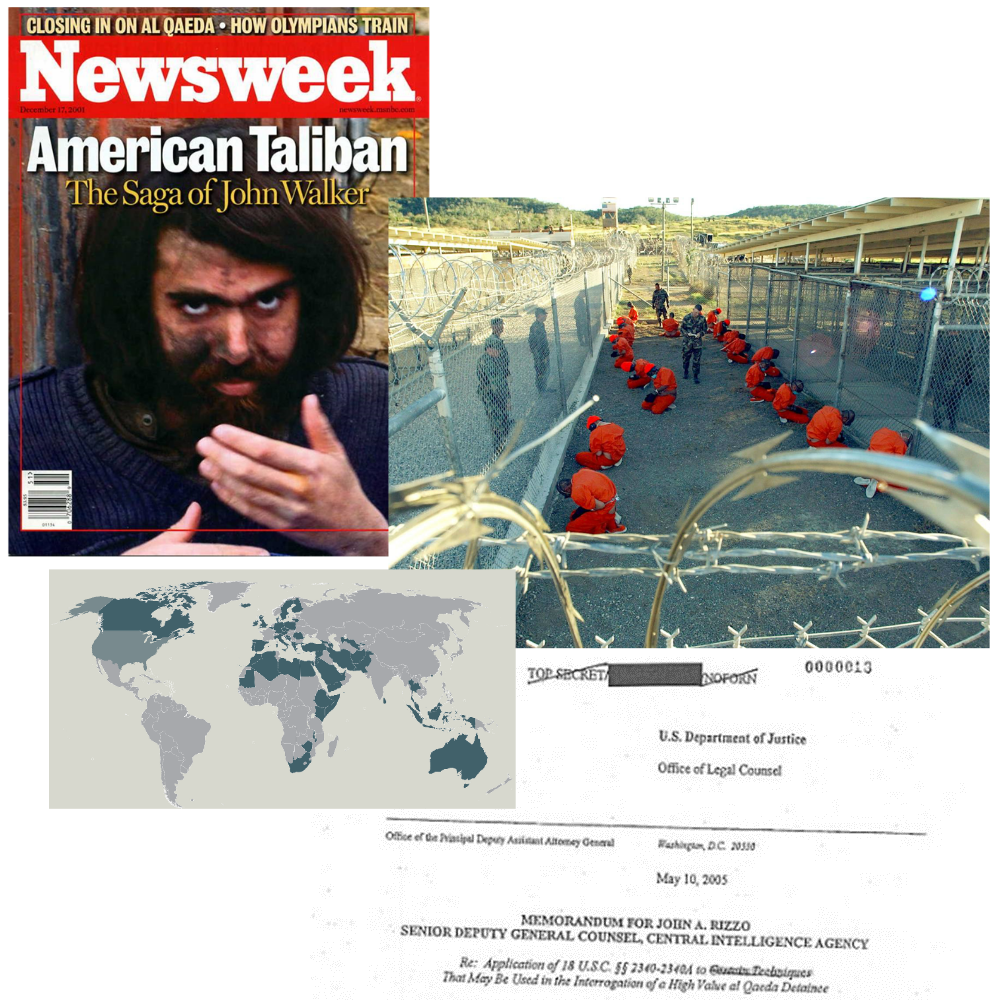 ] -- .pull-right[ > They don't want John Walker to be a human. You know why? Because they couldn't catch Osama bin Laden and we need him. We need a bogey man. Steve Earle ] ??? --- class: inverse # Questions? ???